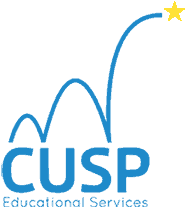Starting college is a time-honored rite-of- passage, marking the beginning of adulthood. College transition programs will help to prepare you, but you yourself will be doing the work of studying, writing research papers and completing lab assignments. An essential aspect of college success is good time management and one advantage of a college schedule is that you will almost certainly have breaks between classes. Using this time wisely will benefit you in numerous ways. Here are some ideas:
Immediately after a class, review your notes. Be sure that you know what is coming up, if there is an assignment due at the next class or if an exam is looming on the horizon. If you have a question, contact your instructor as soon as you can.
Right before a class, review any notes and write down any questions you may have from the previous class. Questions do not always occur to us immediately. Sometimes we need to mull over new information and fit it into what we already know. Then the questions arise and the next class is the best time to get them answered before newer information causes you to forget what you wanted to ask.
If you have a long break, completely switch gears. Some physical exercise provides a nice change to sitting and studying. Go for a walk around campus. If there is a gym or pool and you have sufficient time, get in a workout. You will feel fresh and re-energized.
Grab a snack, especially if you had an early morning class and did not eat breakfast. You truly cannot learn on an empty stomach; that is not just an advertising slogan for cereal companies.
Join study groups. They are helpful for all students but especially students with learning challenges. Discussing the course material out loud will help you to comprehend and retain it. What you did not grasp, someone else will, and they can help you to understand. Check with the learning resources center on campus and join an existing study group or start you own. You may also end up making some good friends.
Find a quiet spot and just relax. Learning is exhausting and your brain needs down time to process and store what you have just learned. If it is safe to do so, you can even nap for a while.
Get a head start on assignments. Procrastination is your worst foe. You do not need large blocks of time to work on major assignments. In just half an hour you can start looking for sources for a research paper or sketch out thoughts to develop later. The advantage to this is that your subconscious mind will go to work and by the time you revisit these ideas your brain will have developed them with little effort on your part.
The road to a college degree or certificate is not easy. Making the best use of the time at your disposal is a tried-and-true strategy for success. So plan well and you will prevail.
